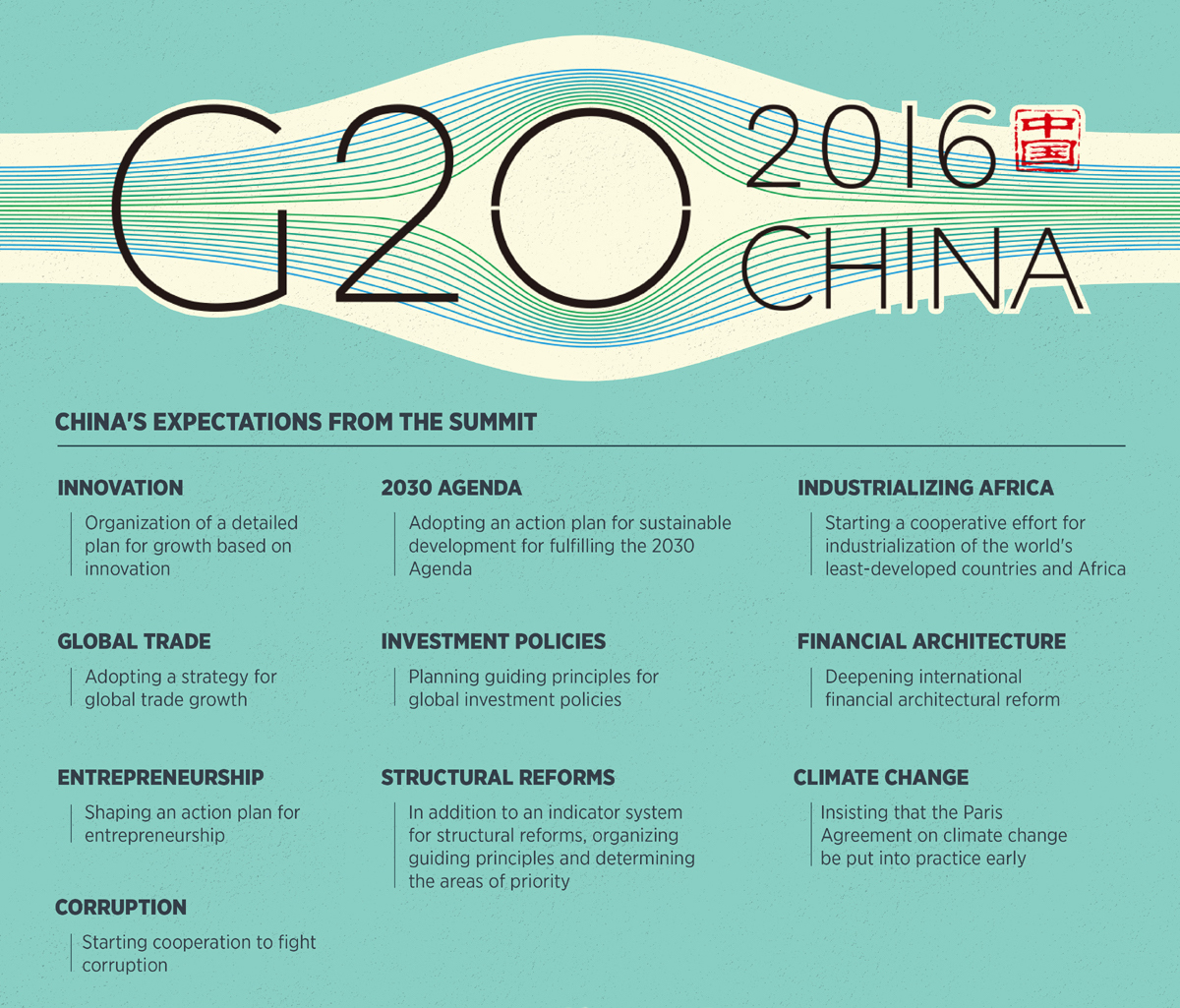While global financial markets are surpassingly calm at the moment, the underlying challenges for our global economic system remain: slower growth, a rebellion against globalization and the deterioration of political consensus in many regions around the world. Determined on directing global economic trends towards growth and stability, leaders of the world’s largest economies met in China earlier this week for high-level discussions at the G20 Summit.
After several days of intense negotiations, the G-20 released their annual Communiqué that outlines unified policy recommendations for reducing greenhouse gas emissions, innovating the global economy and creating a multilateral investment framework among others. The others include an exhaustive list of recommendations for dealing with issues ranging from mass migration, terrorism and the continued spread of the Zika virus. Behind closed doors the atmosphere reflected how varied the interests were among the attendees, with leaders more concerned with individual issues rather than those that affect everyone.
Expectations on the Summit
 Source: Anadolu Agency
Source: Anadolu Agency
With the world’s largest political and socioeconomic institutions slow to adopt reform in governance they have become less able to adapt to the dramatic changes experienced in the global economic system. Our tenacious reliance on maintaining low interest rates combined with the continued proliferation of quantitative easing programmes worldwide to bolster growth simply can’t continue. Global growth has not only been meager, with the International Monetary Fund’s (IMF) forecasts sitting at 3.1% for 2016, any lift has completely bypassed low-income earners in many countries. The skewed distribution of wealth experienced over the past two decades has compounded the issue, further raising anxiety about globalization and worsening the climate for reform. This widening divide in wealth is a major factor behind the United Kingdom’s decision to leave the European Union, Donald Trump’s surge in popularity over the course of his 2016 US Presidential Election Campaign, the rise of the Five Star Movement in Italy and the support for Marine Le Pen in France.
G20’s GDP and Population
 Source: Anadolu Agency
Source: Anadolu Agency
A less accessible and protectionist social and economic policy, combined with our current era of subdued global economic growth, could potentially reduce incentives to invest and slow down trade. An impressive 1,400 protectionist measures have been passed since the global financial crisis.
Brazil, Latin America’s largest economy and a future breadbasket for the world, adopted an alternative approach, reaffirming their commitment towards facilitating market inter-linkages and forming an inclusive, rules-based and open economy that boosts trade, foreign investment and ultimately economic growth. Christine Lagarde of the IMF and Robert Azevedo of the World Trade Organization expressed the same view through their recommendation for business chiefs to lobby governments and keep trade flows as high as possible. With more international trade, cross-border investment will increase thereby creating more jobs and boosting economic growth and prosperity.